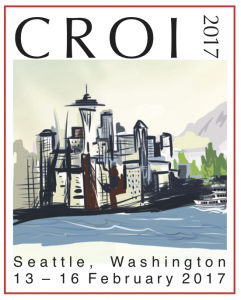Immune-based therapy canakinumab reduces inflammatory markers in HIV positive people on ART
24 April 2017. Related: Conference reports, Treatment strategies, Basic science and immunology, CROI 24 (Retrovirus) 2017.

Richard Jefferys, TAG
Many studies have reported that HIV infection is associated with an increased risk of arterial inflammation and cardiovascular disease.
The pipeline of therapies that might reduce this risk has been discouragingly dry, but at CROI Priscilla Hsue from UCSF presented results from a trial of an anti-inflammatory antibody targeting the cytokine IL-1β that may augur a change for the better.
The antibody, canakinumab, is FDA-approved for the treatment of certain autoimmune conditions and is being tested as a therapy for cardiovascular disease in a large (10,000-person) randomised study in HIV negative individuals. Hsue’s pilot trial recruited ten HIV positive people on suppressive ART with a median age of 59. A single dose of canakinumab was administered at baseline and participants followed for eight weeks.
There were significant declines in inflammatory biomarkers: IL-6 levels declined by 30% and high sensitivity c-reactive protein by 41%. Imaging studies revealed a 10% reduction in arterial inflammation. In terms of safety, Hsue noted a transient drop in absolute neutrophil count that resolved by week four and a single case of shingles that did not appear related to any immunological parameters. No significant changes in any biomarkers of HIV disease were seen apart from a 17% drop in CD8 T cell counts between baseline and week two that was not apparent at any other timepoints. CD4 T cell counts, viral load and T cell activation markers were unchanged. Analyses of measures of the HIV reservoir are ongoing.
“We believe this is one of the first immune-based therapies to show a very profound reduction in inflammatory markers in the setting of treated HIV,” Hsue said, noting that a larger randomised controlled trial is planned that will give two canakinumab doses and follow 100 participants for 36 weeks.
Reference:
Hsue P et al. IL-1β inhibition significantly reduces atherosclerotic inflammation in treated HIV. 2017 Conference on Retroviruses and Opportunistic Infections (CROI 2017), 13-16 February 2017, Seattle. Oral abstract 126.
http://www.croiconference.org/sessions/il-1β-inhibition-significantly-reduces-atherosclerotic-inflammation-treated-hiv (abstract)
http://www.croiwebcasts.org/console/player/33597 (webcast)

